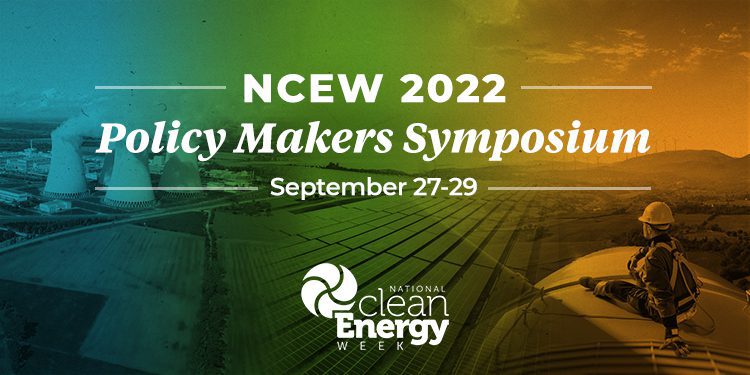Global competitiveness in battling carbon emissions is a notable point of discussion at National Clean Energy Week.
On the final day of National Clean Energy Week, a range of energy industry experts discussed and debated America’s strong global position as a leader in reducing carbon emissions and the country’s overall carbon advantage. In a panel discussion entitled “The American Advantage: Strengthening U.S. Competitiveness,” the group covered various topics, from the critical role of domestic oil and gas production to exploring the latest technologies to boost long-duration energy storage.
The program was moderated by David Paolella, Manager, Research and Analysis, U.S. Policy & Advocacy at Breakthrough Energy, and included George David Banks, Senior Fellow, Citizens for Responsible Energy Solutions, Eric Dresselhuys, CEO, ESS Tech Inc., Anne Bradbury, CEO, American Exploration & Production Council, and Matt Porterfield, Vice President, Policy and Research, Climate Leadership Council
Central to the experts’ conversation was the role of new and emerging technologies. Eric Dresselhuys, CEO of ESS Tech Inc., highlighted how the U.S. is well-positioned to lead the charge when it comes to innovation in the technology sector, stating, “it’s exciting as we think about the energy transition as the next major industrial revolution, this is a place we can win.” Dresselhuys noted how “our innovation will leapfrog [China’s technology], provide better solutions with better carbon impact than what’s available today.” Anne Bradbury, CEO of the American Exploration and Production Council, spoke at length about how the domestic industry supports two-thirds of these technological developments and the importance that regulations do not get ahead of the technologies and limit potential breakthrough innovations.
Panelists touched upon recent pieces of legislation passed by Congress that are bolstering domestic green energy production. The Inflation Reduction Act and the Infrastructure Investment and Jobs Act have several provisions supporting developing and producing cutting-edge technologies, helping build robust domestic markets, driving down costs, and increasing exports. Matt Porterfield of the Climate Leadership Council spoke about various opportunities for bipartisan legislative initiatives, including aligning trade policies with like-minded countries, alleviating trade tensions, and exploring border tariffs tied to carbon production.
The theme was that American businesses are the greatest and our allies enjoy working with us because we produce the finest, most reliable, and honest products. George David Banks with Citizens for Responsible Energy Solutions brought this point home by sharing from personal experience: “Growing up in a poor rural area like I did, I can tell you that my friends and folks back home if they were given a choice between buying as much cheap stuff from China or paying a little bit more for American made goods that help keep local companies afloat, they would buy American.” This sentiment rings true not only on Main Street but also on the international scale when tackling global carbon emissions. Overall, the U.S. is leading the pack regarding decreasing carbon production, and the future is bright for remaining competitive.





